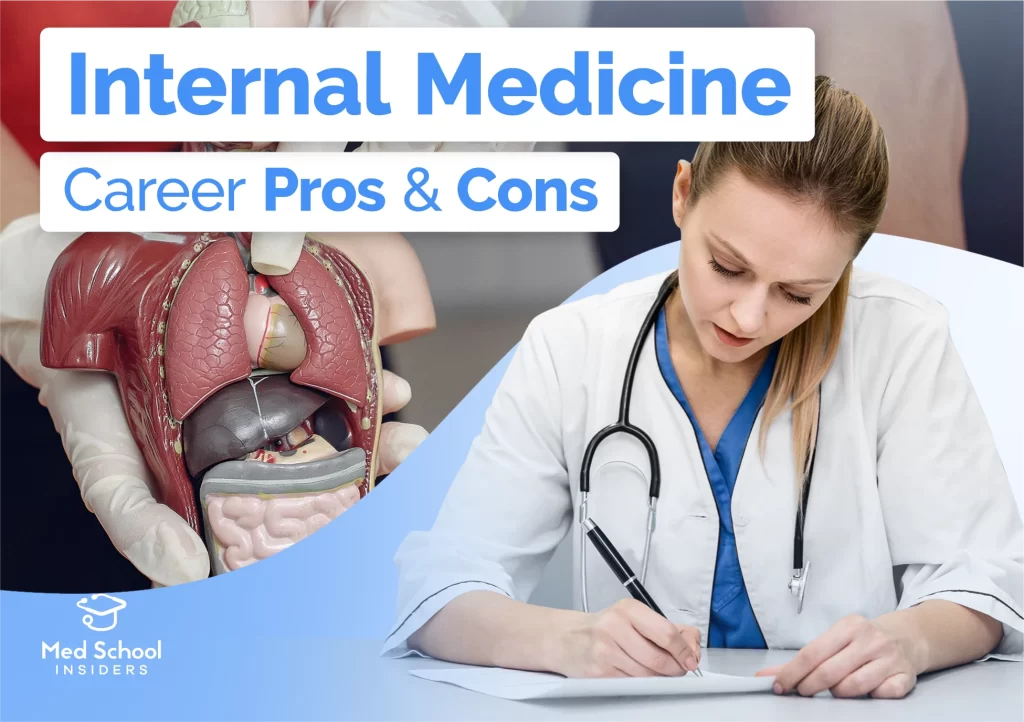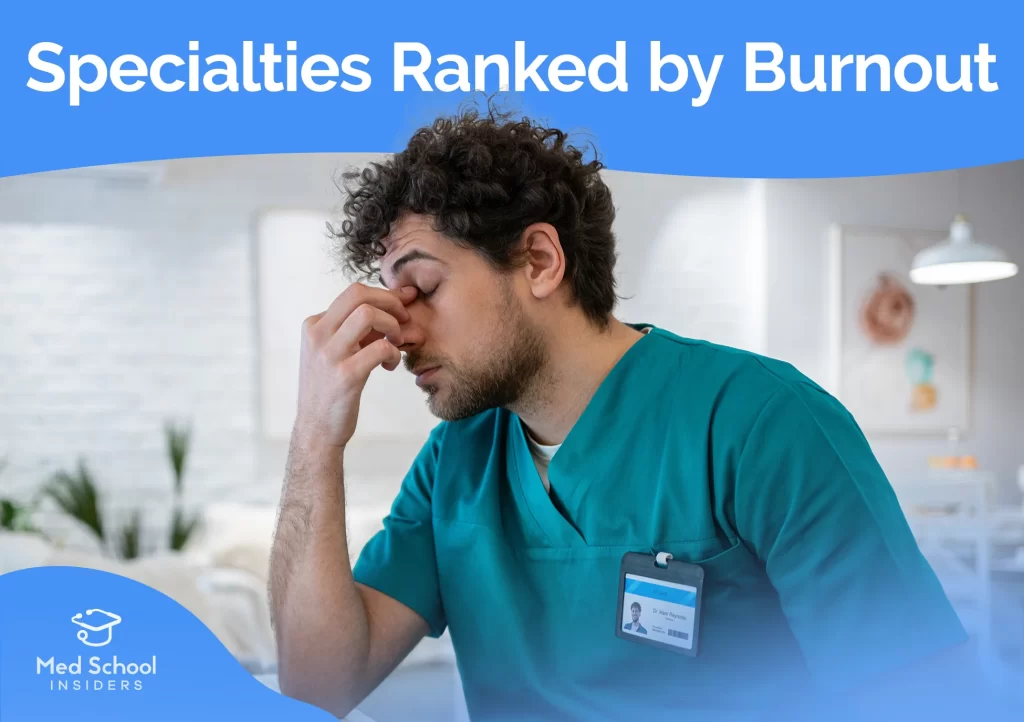Are you considering a career as a general surgeon? With so many specialties to choose from, it’s one of the hardest choices medical students have to make.
This guide will cover the pros and cons of becoming a general surgeon, from the career flexibility and immediate impact on a patient’s health to the demanding working hours and challenging work environment.
There are so many different factors to account for when choosing a specialty, including how many years you’ll spend in residency, whether or not you want to focus on procedures, the level of patient interaction you’ll have, the setting you’ll practice in, the people you’ll work with, your work-life balance, your compensation, and more.
This series delves into the career of a general surgeon from the perspective of Dr. Kevin Jubbal. He outlines the factors he considered and explains why he ultimately chose not to pursue general surgery as his specialty. That said, rest assured that this guide presents both sides of the story, outlining the pros and cons of pursuing a career in general surgery.
For a completely objective and unbiased look at general surgery, including more details into the daily life of a general surgeon and the exact steps to take to become one, also check out our guide to How to Become a General Surgeon (So You Want to Be).
What I Liked About General Surgery
1 | Most Options for Fellowship
One of the most compelling aspects of general surgery is the incredible breadth of subspecialty options available to you. Compared to any other surgical residency, general surgery offers the broadest range of fellowships to choose from, including:
- Trauma surgery
- Breast surgery
- Endocrine surgery
- Minimally invasive surgery
- Surgical oncology
- Hepatobiliary surgery
- Colorectal surgery
- Transplant surgery
- Cardiothoracic surgery
- Vascular surgery
- Pediatric surgery
- Plastic surgery
While some of these are technically “second residencies” rather than fellowships, like plastic surgery, most people consider them fellowship pathways nonetheless.
This flexibility is invaluable if you haven’t pinpointed exactly what type of surgery excites you most by the time you graduate from medical school. General surgery gives you time to explore different subspecialties during residency and make a more informed decision about your future direction.
2 | Real Surgery
Within surgical subspecialties, there’s tremendous variety in the types of procedures you’ll encounter. Do you prefer big open cases that expose extensive anatomy and provide that adrenaline rush? Or are you drawn to minimally invasive techniques, which operate through small ports using cameras and specialized instruments?
Some surgeons thrive on quick, high-turnover procedures, while others find satisfaction in slow, meticulous operations that require intense focus and precision, such as microsurgical techniques where tiny blood vessels are being reconnected.
Personally, I always found big open cases more exciting than laparoscopic procedures. The slow, methodical operations were also more rewarding than the quick turnarounds. General surgery offers plenty of both approaches, with lots of laparoscopy if that’s your preference, but also substantial open procedures depending on your subspecialty focus.
While you won’t love every type of surgery within general surgery, the numerous subspecialties ensure you can find an area that genuinely resonates with your surgical interests and personality.
And let’s be honest—this is surgery at its most fundamental level. While I have tremendous respect for all surgical specialties, no one can argue that general surgery isn’t “real surgery,” as people (not me) sometimes do with OB/GYN or ophthalmology. It’s as authentic and comprehensive as surgical training gets.
3 | Great for Impatient People
One aspect I love about surgery, and general surgery in particular, is the immediate gratification it provides. You don’t spend months counseling patients about lifestyle modifications and medication adjustments, only to wait and see if the interventions work. Instead, you diagnose pathology and, when appropriate, fix it surgically with your own hands.
That immediate sense of identifying a problem and solving it provides incredible satisfaction. The patient’s quality of life often improves dramatically and quickly, which is deeply rewarding.
Of course, surgical judgment is crucial—knowing when to operate and when not to is essential. It’s easy to become “scalpel happy,” and as they say, if you ask a barber if you need a haircut, you know what the answer will be.
4 | Limited Clinic and Rounding
For those who prefer action over prolonged patient discussions, general surgery offers relatively brief rounding sessions compared to medical specialties. Depending on your subspecialty, you’ll have some clinic time, but it’s significantly less than most other medical fields.
This structure appeals to physicians who want to focus their time on procedural interventions rather than extensive outpatient management.
5 | True Life Saver
While the “saving lives” narrative is often overstated in medicine, it genuinely applies to general surgery. General surgeons develop the broadest skillset of any surgical specialty and are among the few physicians you want present when emergencies arise.
Whether it’s necrotizing infections, ischemic bowel, massive bleeding, or other life-threatening conditions, general surgeons are equipped to handle diverse emergencies that require immediate surgical intervention.
There’s something genuinely compelling about knowing you can manage most situations that require procedural intervention to save lives—a capability that’s more limited in other surgical subspecialties.
What I Didn’t Like About General Surgery
Note: These perspectives reflect the opinions I held during medical school, which were largely influenced by my peers, mentors, and rotation experiences. My views on some of these points have evolved since then.
1 | Challenging Culture and Reputation
General surgery has earned a reputation for extreme intensity that goes beyond the typical surgical environment. While something is appealing about the hardcore, no-nonsense approach, general surgery can take this to an extreme that some find less attractive than other surgical subspecialties.
This intensity often cultivates personality types that some find abrasive. While I don’t mind direct, unfiltered communication—I actually prefer it and find it refreshing—I was concerned about the high levels of apparent misery I observed among many general surgery residents and some attendings during my rotations.
2 | Demanding Residency
All surgical residencies are challenging, but general surgery has a particularly intense reputation. Residents routinely work 80+ hours weekly, with the demanding schedule being a product of both the culture and the comprehensive training requirements.
While the extreme “macho” culture of decades past, where programs boasted about nearly 100% divorce rates among residents, has largely disappeared, the training remains more rigorous than most other specialties.
If you’re planning to subspecialize, the timeline becomes even more daunting. A general surgery residency typically requires five years, and competitive fellowships often necessitate one to two years of research during residency. You’re looking at six to seven years of residency plus an additional one to three years of fellowship training.
This extended timeline explains why direct pathways to certain subspecialties are often more competitive than the general surgery route. For example, integrated plastic surgery residencies, which last six years, are significantly more competitive than the general surgery pathway, which is five years of general followed by three years of plastic.
However, many applicants use general surgery as a backup strategy.
3 | Anatomical Focus
Most surgical specialties focus on specific organ systems, anatomical regions, or tissue types. The anatomy and surgical approaches in general surgery were less appealing to me personally.
Due to the increasing specialization of medical fields, general surgery has evolved mainly into abdominal and endocrine surgery. Unless you’re in a rural setting, you won’t handle pathologies that neurosurgeons, orthopedic surgeons, plastic surgeons, ENT specialists, or urologists typically manage—patients are referred directly to those specialists when available.
This specialization leads to my next concern about the typical bread-and-butter caseload.
4 | Bread and Butter Cases
Every specialty has its “bread and butter,” which are the routine procedures that make up the majority of your practice. General surgery’s common cases include laparoscopic cholecystectomies (removal of the gallbladder), hernia repairs, and appendectomies.
These procedures, while important, are predominantly abdominal and gastrointestinal surgeries that didn’t excite me after observing several of them. I couldn’t envision performing these procedures as the foundation of my career for decades to come.
5 | Challenging Lifestyle
General surgery isn’t considered a “lifestyle specialty.” Even as an attending physician, you’ll typically work demanding hours that extend well beyond residency.
While you theoretically have more control as an attending, most general surgeons I know work challenging schedules throughout their careers. It’s difficult to reduce hours when you’re building your practice, paying off loans, and trying to achieve financial stability after spending the first decade and a half of your adult life in training without significant income.
If you’re on trauma call, it’s common to be called in at 2 AM and then begin your regular surgical day at 7 AM. Unlike many other specialties where you might never step foot in a hospital after residency, general surgery typically requires ongoing hospital involvement unless you maintain a purely elective practice, and that’s usually the only exception.
6 | Delivering Difficult News
Certain specialties involve delivering bad news more frequently than others. General surgery’s breadth means that this varies. For example, a trauma surgeon’s experience differs significantly from that of a pediatric surgeon.
During my neurosurgery rotation, I was surprised by how much poor patient outcomes affected my overall mood and energy. While I wasn’t overtly sad, I noticed a shift toward being more solemn, and I worried about the cumulative emotional impact over the years of practice.
Some areas within general surgery similarly expose you to challenging outcomes and difficult conversations with patients and families.
7 | Perception as “Last Choice”
This is a perception I no longer believe and don’t want to perpetuate, but it represents what I heard as a medical student from residents and peers.
The reputation was that general surgery was the least desirable surgical specialty, offering the worst lifestyle, dealing with less appealing anatomical regions, and being the least competitive surgical option. The narrative suggested people only chose general surgery if they couldn’t match into a “better” surgical subspecialty.
I want to emphasize that I no longer hold this view; however, these perceptions, whether accurate or not, influenced my thinking during medical school and may affect the perspectives of other students in the field.
If You’re Considering General Surgery
So, should you become a general surgeon?
It depends on what you’re looking for and what aspects of surgery genuinely excite you.
There are pros and cons to every specialty, and what’s important is identifying what motivates you to get out of bed in the morning and what challenges you’re willing to accept. What trade-offs align with your career goals, and what aspects of patient care would provide long-term satisfaction?
If you thrive on immediate results, enjoy the hands-on problem-solving nature of surgical intervention, want to be a true life-saver in critical situations, appreciate having the broadest range of surgical fellowship options, and find fulfillment in seeing patients improve rapidly through your technical skills, general surgery could be an excellent fit.
However, you must be prepared for one of the most demanding residencies in medicine, a challenging lifestyle that extends well into your attending years, the intense culture that comes with surgical training, and the reality that your bread-and-butter cases may become repetitive over time.
General surgery is often perceived as the foundation of all surgical training, as it’s comprehensive and essential. Some surgeons are strongly drawn to its breadth and the wide range of pathologies they can manage, while others use it as a pathway to more specialized surgical fields. If you’re considering general surgery, remember it’s a diverse field with numerous subspecialties, so ensure you experience the different ways general surgeons can practice.
General surgery is an excellent specialty for those who want immediate gratification from their interventions, possess the resilience for demanding training and practice, and aren’t deterred by challenging work hours. The field’s flexibility through fellowship training allows you to ultimately shape your career according to your surgical interests, whether you stay broad or subspecialize.
If you want to learn more about general surgery, check out So You Want to Be a General Surgeon.









